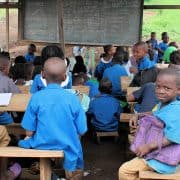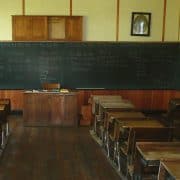|
Getting your Trinity Audio player ready...
|
South Africa’s home affairs department is not immigrant-friendly. At least, not to immigrants who are ordinary people trying to make a modest living. If you’re wealthy, it may be another story entirely.
Our Project Lokisa report, released in November 2016, exposed rampant corruption in Home Affairs’ Marabastad refugee offices, where people were forced to pay for services that should have been free, and indeed, to pay just to get inside the premises.
The onerous paperwork also makes it difficult for immigrants, who must take time off work to sort it out, and the delays and incompetence from Home Affairs’ side often mean they are undocumented through no fault of their own.
This story from GroundUp illustrates the difficulties of being an immigrant in South Africa. Read it below.
By Bernard Chiguvare
First published on GroundUp
Zimbabwean families caught between the departments of Home Affairs and Education are resorting to buying fake documents in order to register their children at schools in South Africa.
Some schools will not accept immigrant children without a study permit from Home Affairs. But Home Affairs will not issue a study permit without proof of acceptance from a school, say immigrants.
Stuck between the two departments, families are buying fake study permits for about R300.
Jessica Shelver, spokesperson for Western Cape Education MEC Debbie Schafer, said schools were required to issue a letter to foreign learners who had been provisionally accepted. This letter should be sufficient for Home Affairs to issue a study permit.
But some schools are not doing so. “I visited four schools in Retreat trying to register for grade 1 for my child but I could not,” said one Zimbabwean mother, who has been in South Africa since 2008.
“All the schools required the child’s study permit or asylum seeker’s document. The two government departments are ruining our children. The requirements are pushing our children out of school,” she says.
The mother, who is on a Zimbabwe Special Permit, which she renewed last year, says she bought fake asylum-seeker documents for her child, and used these to get a document from the school. Now she is planning to visit Home Affairs with the legitimate school documents, get a study permit, and throw away the fake documents.
“Though I am planning to get a proper study permit it will take time because again I have to produce R1,350 for the study permit. I need to work for months for that money. I could take my child back home to Zimbabwe, but I cannot stay separated from my child,” she says.
She works as a childminder.
Another Zimbabwean mother, who did not want to be named, tried to register her child for grade R, without success, though she has been in South Africa since 2009 on a Zimbabwe Special Permit.
Her five-year-old was born in South Africa but has no birth certificate.
“After visiting several schools I resorted to a fake study permit which I submitted to one of the schools,” she says.
She is planning to apply for a visitor’s visa for her child.
Thabo Mokgola, media liaison officer at Home Affairs, said parents should apply for study permits for their children while they are still in Zimbabwe. The parents of Zimbabwean children born in South Africa should get a birth certificate from the department, then a passport from the Zimbabwean Embassy, and then apply for a study permit.
Parents should contact the District Office for assistance if schools are not complying, said Shelver.







